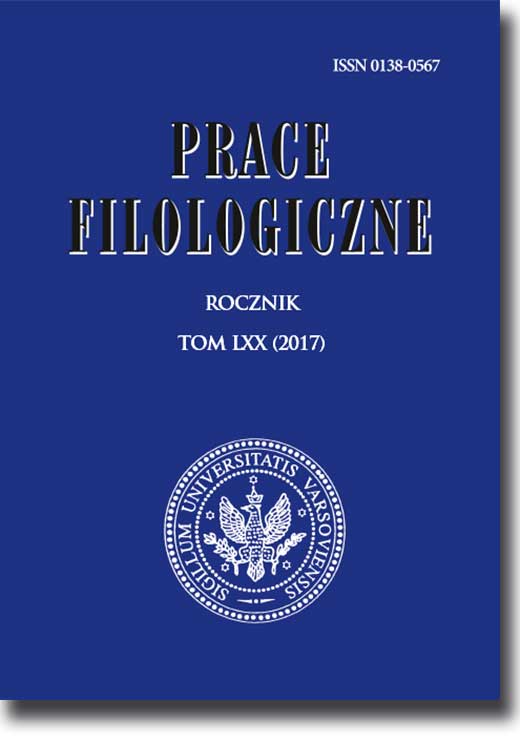Czy czasowniki {stracić, zmarnować, roztrwonić} i {przepuścić} są wyrażeniami synonimicznymi?
Are the Verbs {stracić} (‘to lose’), {zmarnować} (‘to waste’), {roztrwonić} (‘to sguander’) and {przepuścić} (‘to splurge’) Synonymous?
Author(s): Dorota KrukSubject(s): Theoretical Linguistics, Applied Linguistics
Published by: Wydział Polonistyki Uniwersytetu Warszawskiego
Keywords: {stracić} (‘to lose’); {zmarnować} (‘to waste’); {przepuścić} (‘to splurge’); {roztrwonić} (‘to squander’); unit of language; synonymy; semantic properties; explication
Summary/Abstract: The paper attempts at providing a comparative analysis of selected units of language founded on the verbs: {stracić} (‘to lose’), {zmarnować} (‘to waste’), {przepuścić} (‘to splurge’), {roztrwonić} (‘to squander’). While dictionaries tend to describe the verbs as polysemous, it is also postulated that they are synonymous one with the other. The author has distinguished the following units of language: {[ktoś] stracił [kogoś/coś], [ktoś] zmarnował [coś], [ktoś] przepuścił [coś], and [ktoś] roztrwonił [coś]}. The semantic and syntactic analysis of predicates (i.a. their selectional restrictions) leads to determining their semantic components and formulating preliminary explications. The author concludes that all the analysed units share the notion ‘have’ (presupposed) and their definitions exhibit some similarities as to the semantic components. The components are, however, structured and ordered in a different way, thereby the analysed verbs may not be deemed synonymous.
Journal: Prace Filologiczne
- Issue Year: 2017
- Issue No: 70
- Page Range: 317-330
- Page Count: 14
- Language: Polish

